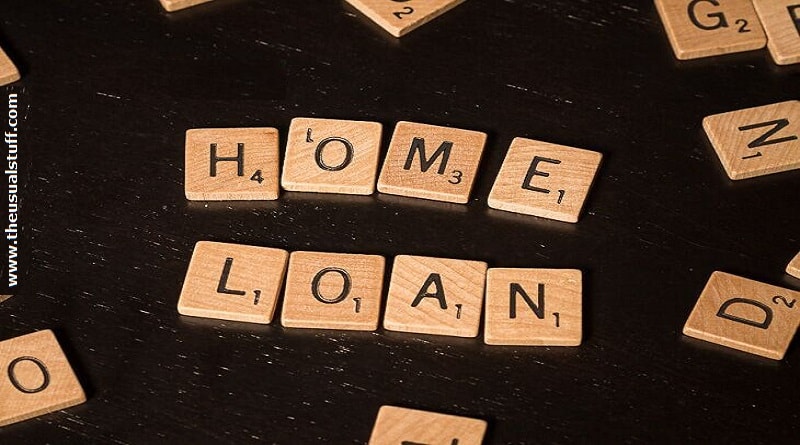7 Tips to Help Negotiate Lowest Mortgage Interest Rates
It’s an American dream to own your own house. But why pay more to realize it when you can achieve the same by negotiating lowest mortgage interest rates for yourself? If you are planning on moving house to, for example, San Antonio then it is a good idea to keep a close eye on the San Antonio mortgage rates to see when the best time to get the lowest mortgage rate is. It’s all about planning ahead and getting the best deal. If you are looking for the best deal on your mortgage, you could check out comparison sites like Money Expert as it is a good way to view deals so you are able to pick the one that fits you. So before you go out for mortgage shopping, make sure that you read and apply the below 7 useful tips that will help you finance your dream home at the best mortgage rates. This is why we’d suggest making sure you’ve secured a good deal to begin with. If you’re buying a house for the first time, then this can be a overwhelming process, there are plenty of online resources to aid you through these stressful times!
7 Tips to Negotiate Lowest Mortgage Interest Rates
1. Credit Score Health
It may not take you by surprise that individuals with relatively healthy credit scores get the best mortgage rates. That’s quite obvious. Right?
Mortgage companies lend their money to those who are more likely to return it back within time. People with low credit scores possess an inherent risk hence the lender demands higher return to compensate for that risk. This can also apply to people who don’t have any credit. This means never having a credit card, a car loan, or even paying bills via direct debit. Using Credit Cards to Build Credit is the quickest way of building credit. Using a credit card for small to medium-sized transactions and then paying it off as soon as possible shows that you are responsible for money and can be trusted.
Though the numbers vary but generally speaking, borrower with a good credit score (740 or higher) is in a position of negotiating a mortgage rate upto 1.5% lower than a borrower with low credit score. Say till 620.
If we assume a loan of USD $100,000 over a period of 30 years, a healthy credit score can potentially save you USD 1,500 a year.
That’s $45,000 in 30 years time.
On the other hand, borrower with credit score of less than 620 may find it very difficult even to secure a home financing deal.
So if you want to negotiate the lowest mortgage interest rates to finance your home, make sure that your overall credit score is in good standing.
2. Total Loan Amount
When it comes to the total loan amount, the key is to strike balance.
What does that even mean?
Just bear with me.
Before I explain what I mean, let me impart an important information.
When you go out for mortgage shopping, the total loan amount influences heavily on your mortgage interest rates.
The more you seek to borrow, the more risk lender will assume.
And what comes with high risk?
Yes, you are right. Higher interest rates.
So does that mean that the less you borrow, lower the interest you need to pay. Right?
Well, that applies to some extent but it’s not completely true.
There is a range of borrowing amount above which the loan classified as a Jumbo Loan.
According to Federal Housing Finance Agency (FHFA), for 2017, this is $424,100 in low income areas and $626,150 for areas with the most expensive homes.
Anything above this threshold is perceived as too risky by the lender. Hence they demand premium interest rates.
Coming to the lower end, anything below $100,000 though not considered risky, but lenders want to make maximum out of the deal. Hence, they charge higher interest rates for small loans as well otherwise they do not see any incentive of extending financial help for such small amount.
So in order to shop for lowest mortgage interest rates, this is what I meant when I said you need to strike a balance between these two extremes.
I hope you get it now.
3. Your Home Location
The location of your potential dream home also affects the mortgage rates.
It boils down to many sub-factors that you should consider while making a decision.
For instance, the first divide is between the rural or urban areas. It’s generally a no-brainer that housing prices in rural areas are much more affordable as compared to their urban counterparts.
Similarly, your ambitions of owning a beach house would require you to save a hefty amount from your paycheck as compared to other non-glamorous locations.
So as we talked about in point number 2, the more you need to borrow, the more you will have to pay as mortgage interest. Since the perceived risk by the lender is assumed to be higher.
Similarly, part of the difference in mortgage rates can also be attributed to the basic rule of demand and supply.
The more lenders there are, the more the competition among them to gain new clients. Hence, you can negotiate lowest mortgage interest rates in the location where there are relatively large number of lenders.
Additionally, general health of the housing market in your location also affects the interest rates. If the market is healthy, lenders will perceive less risk. Hence, you can gain benefit and negotiate best mortgage rates for yourself.
4. Down Payment
If you are willing to pay more in your down payment, then you can expect some relaxation in your interest rates.
Reason? The same old risk perception.
Putting it objectively, normally paying back around 20% of the loan amount straightaway as down payment can put you in a better position to negotiate for best mortgage rates.
Anything lower than that, your lender may ask you to purchase mortgage insurance a.k.a Private Mortgage Insurance (PMI). This is to protect the lender in case of default.
Buying PMI adds up to the overall cost of borrowing funds for your home therefore, becomes more expensive.
So does that mean that you should pay more as down payment?
This may not sound simple. While traditionally investors were in favor of paying more, recent study has shown results that suggests otherwise and encourage you to pay as less as possible when it comes to down payment.
I’d recommend you that before making 20% down payment, Read This
In the end, it all boils down to the individual’s case. So before making a decision, make sure that you consider all the factors.
As a matter of fact, I recently read an informative article from Jennifer Lobb discussing if you can get a personal loan for your house’s downpayment. I’d definitely suggest you to read it.
5. Loan Term
Loan term is the total duration of the period over which you need to make payments. Or in other words, return the whole borrowed amount. Since extending mortgage finance for longer period of time is more risky, lenders demand higher interest rates.
However, on the other hand, despite lower interest rates and overall costs, loans with relatively shorter terms demand higher monthly payments. As you have less time to pay off your principal amount.
So in order to negotiate lowest mortgage interest rates, make sure that you do the necessary cost benefit analysis.
6. Interest Rate Type
There are two types of interest rates
Fixed Interest Rate: This remains fixed over the loan’s term.
Adjustable Interest Rate: Though this remains fixed initially, it is set to change later on in order to reflect the prevailing market rates.
So if you want to buy yourself a best deal when it comes to home financing, make sure that you have a good eye on the market to choose between fixed or adjustable interest rates.
If you expect the interest rates to go up in the future, opt for the fixed one. In case otherwise, go for the adjustable interest rates.
You may also hire services of a financial analyst to help project the market for you. However, this will add up to your borrowing cost.
7. Loan Type
There are different loan types available out there. The 4 broad categories of loan types can be divided into:
-
FHA
Administered by Federal Housing Administration, the body offers mortgage home insurance to different lenders. Ultimately, the consumer or the homeowner has to bear the cost of the insurance. However, the eligibility criteria of qualifying for this loan type is generally more flexible than its Conventional counterpart. -
USDA Loans
These loans are directed towards low-to-moderate-income rural residents. -
VA Loans
Administered by the Department of Veteran Affairs (VA), the body offers loans to the veterans and their families. Some VA loans are available with no down payment. -
Conventional
This the type of loan not guaranteed or insured by the government. Like VA or FHA we talked about above.
So before going out for mortgage shopping, check out which category of loan type you are eligible. This small research can save you a lot and help you qualify for best mortgage rates.
Final Word.
I hope I have laid down enough guidance for you to help decide a deal with the lowest mortgage interest rates.
In the end, I’d wrap up by saying that buying a beautiful home for yourself and your family is quite achievable from your monthly income. The key is to dig a bit deeper and play your cards well. And this can only be done when you know all the factors that come into play in deciding your mortgage interest rates.



Pingback: How to Claim Tax Benefits on your Job Hunting Expenses - The Usual Stuff
Thanks for the post
You’re welcome!
Hi there An high yield investment in luxury apartments on the shoreline of Bat Yam, Israel – right before the prices take off dramatically! Merging of Bat Yam with Tel Aviv, prices will be more than double! Can I contact you by phone Tell you more?
Hi Sharon,
You can contact me via the contact form.
Thanks.
It works quite well for me
Pingback: Can You Negotiate Mortgage Rates | Mortgagebrokersintexas